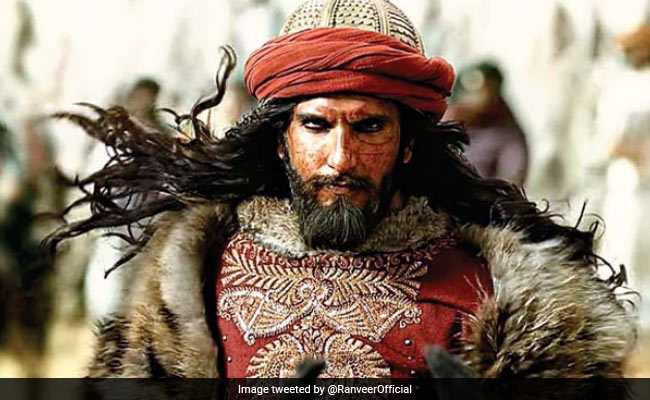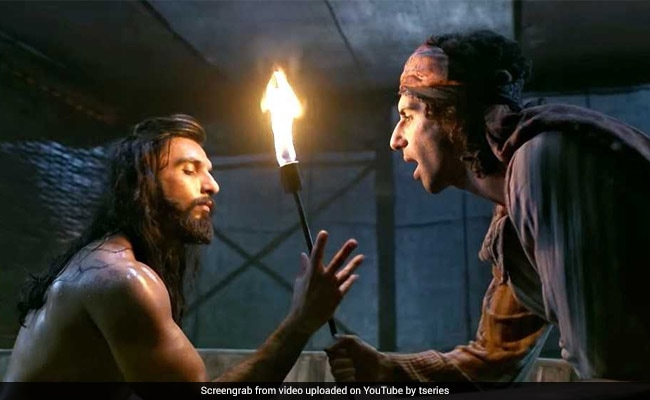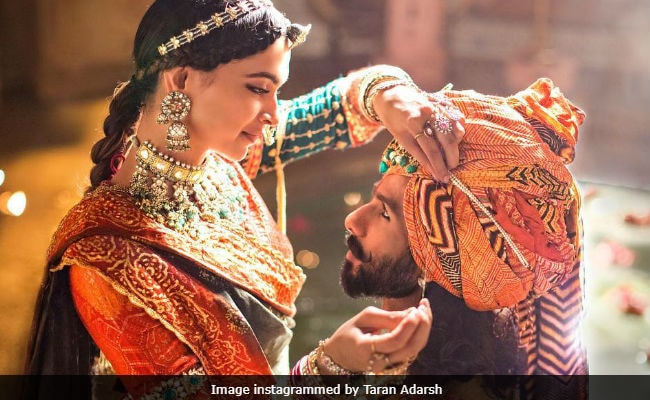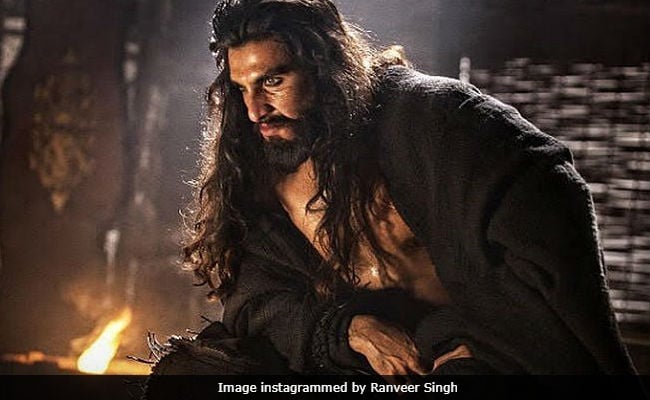I saw "Padmaavat" early last week and missed the first five minutes of the film which include a disclaimer that the film has nothing to do with historical correctness. Seated next to me in the theatre in Navi Mumbai was an elderly couple. The husband dressed in a kurta-pyjama, waistcoat, mojdi attire helped me understand the immediate implication of an allegedly historic film.
The film begins with Raza Murad as Jalaluddin Khilji with a flowing red beard, tearing into a big chunk of flesh, followed by his savage nephew, Alauddin Khilji, a kohl-eyed, debauched caricature of a Muslim prince. Alauddin has sex with a girl just before his nikaah with Mehrunnisa and treats his wife like a slave on their wedding night.

Ranveer Singh as Delhi Sultan Alauddin Khilji in Sanjay Leela Bhansali's "Padmaavat"
The moral corruption of Khilji continues with unsubtle references to his homosexual relationship with his slave Malik Kafur who pines for the attention of his king. If homosexuality is frowned upon in the Bhansali scheme of things, it is an attribute attached to Muslim rulers who by now are established as depraved, unscrupulous, two-faced opportunists. Each time Khilji backstabs or attacks a Rajput, you are not allowed to miss the symbolism. He does this while the green flag with the star and crescent is displayed boldly on the screen during the attacks on the sovereignty of the righteous nationalists. Present day Kasganj is pitching for a similar narrative.

Alauddin Khilji - a bisexual ruler - was gifted Malik Kafur (played by Jim Sarbh), as a slave
The theme of a debauched Dilli sultanate runs through Bhansali's narration of Mughal rulers. In his previous outing, "Bajirao Mastani", the nizams and Dilli Darbaar are the bearded kohl-eyed brutes who attack the nationalist Peshwas to have absolute control over the country.
While "Padmaavat" bears no pretence of being a faithful account of events in history or even the fictional account of the poem it claims to be based on, it is disturbing to see Bhansali's account of Amir Khusrau, the 14th-century mystic, historian and poet. Amir Khusrau is one of the pillars of Sufi Islam and Persian literature, also referred to as "Tuti-i-Hind" (Singing Bird of India). His poems and literary work which talk of the Brahmins of Somnath and Hajis at Mecca in the same breath are a metaphor to the secular idea of India. Yet Khusrau is reduced to being another court jester in "Padmaavat", a yes-man to the savagery of Alauddin Khilji.

Shahid Kapoor plays Maharawal Ratan Singh (Rani Padmini's husband)
In India, as in democracies around the globe, mainstream cinema has been a powerful tool that shapes public opinion and narrative. In a communally sensitive atmosphere in the country where lynchings and murders in the name of religion are becoming a norm, Bhansali has strengthened the stereotype of the evil, diabolic, murderous Muslim, a trope that forms the basis of right-wing hate of minorities. The calls for demolition of the Taj Mahal or disparaging comments about the iconic monument by leaders of the BJP has been an extension of this narrative that chooses to see the Taj Mahal as a Muslim monument built by the Mughals.

The theme of a debauched Dilli sultanate runs through the narration of Mughal rulers
Bhansali was awarded the Padma Shri in 2015. With greater fame and honour comes greater accountability, if not to the truth, then to the idea of a country whose founding principle was based on fairness and the absence of bias for the less privileged.
(Rana Ayyub is an award-winning investigative journalist and political writer.)
Disclaimer: The opinions expressed within this article are the personal opinions of the author. The facts and opinions appearing in the article do not reflect the views of NDTV and NDTV does not assume any responsibility or liability for the same.


